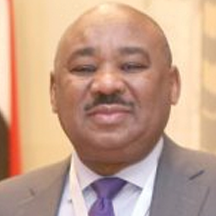Exchange rate undervaluation: the impact on participation in world trade
Can currency undervaluation influence participation in world trade through global value chains (GVC)? This column reports new evidence on the positive impact of an undervalued real exchange rate on the involvement of a country’s firms in GVCs. Undervaluation acts as an economy-wide industrial policy, supporting the competitiveness of national exports in foreign markets vis-à-vis those of other countries.
To escape the crisis, embark on a path of renewal
In the chaotic global post-Covid-19 economy, with the war in Ukraine, the challenge of adjusting to the stagflation engulfing the world is particularly hard for the oil-importing countries of the Middle East and North Africa. This column summarises the key messages of a report from the MENA Commission on Stabilization and Growth.
Prospects for Sudan’s peace agreement in the shadow of the coup
The Juba Agreement for Power Sharing in Sudan (JAPS) signed in late 2020 raised hopes of ending almost two decades of internal armed conflict in Sudan, but the military coup of October 2021 has thrown doubt on whether the peace process can succeed. This column summarises research concluding that even without the coup, the JAPS alone would have been insufficient to bring peace and democracy to the country.
Covid-19 impacts could be severe and long-lasting for developing countries
The United Nations High-level Advisory Board on Economic and Social Affairs, of which ERF Managing Director Ibrahim Elbadawi is a member, convened its first meeting recently. As this column reports, the experts urge international solidarity to prevent the Covid-19 crisis from pushing countries further apart.
An appeal for Sudan’s future
Sudan today is on a knife-edge: it can evolve toward peace and democracy – or spiral into instability and violence. As this Project Syndicate column argues, vital and timely international assistance can make the difference between success and failure for the new government.
Sustainability of GCC development under the new global oil order
It is now a widely held view that the price of oil will eventually be converging to a lower long-term trend. Together with growing demands for political change in the MENA region, this implies the need for many countries to reconsider their growth models and their underlying social contract. This column considers the implications for the members of the Gulf Cooperation Council.
Knowledge, research networks and development policy: the ERF at 25
ERF’s annual conference has become the premier regional event for economists of the Middle East and North Africa (MENA). This column previews the 2019 conference, which takes place in Kuwait City next week (10-12 March) and which marks the 25th anniversary of the ERF. The central focus will be on the knowledge economy as an economic development model for the region.
The new normal in the global economy: challenges for MENA
ERF’s annual conference has become the premier regional event for economists of the Middle East. This column previews the 2018 conference, to be held in Cairo in July, where the main theme will be the challenges for the region of the likelihood of a relatively sustained period of low oil prices as well as disruptive cyclical movements around the long-term price trend – the so-called ‘new normal’ in the global economy. Special sessions will also discuss the challenges of inequality; climate change and environmental damage; and solidarity, economy and social justice.


